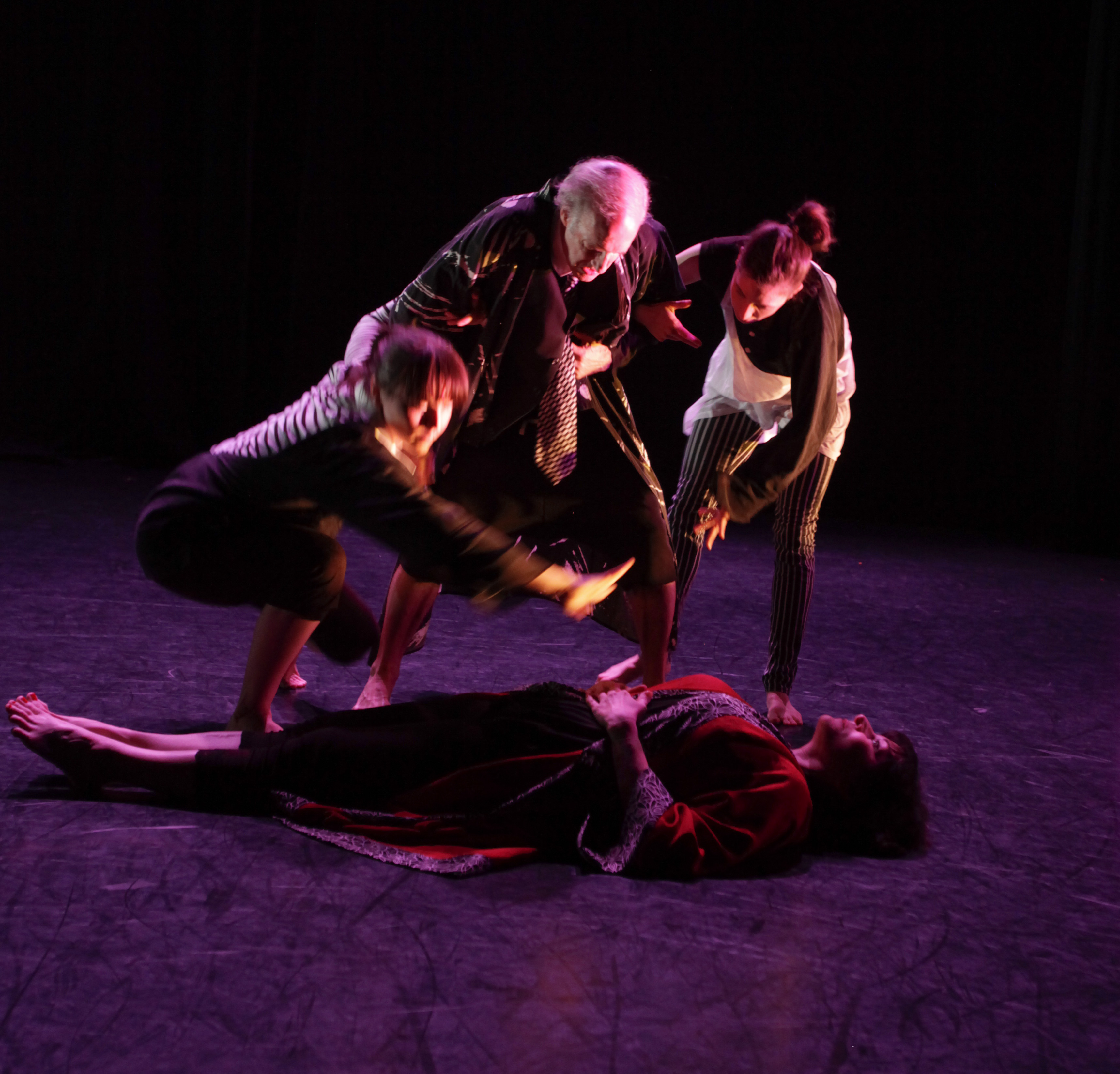Mother Tongue - Two Poets, Two Performances

The experience is like watching a series of snap shots, moving from one into the next, add the sound of voices individual and in a chorus, a violin and percussive instruments aptly punctuating movement and the poetry and you have the essence of Mother Tongue.
In part one (The Poet's Dream), the snap shots are beautifully lit. Costume designer Barbara Clayden creates layered looks for each performer with a multitude of swatches of black and white; strips, slashes, splatters... blending these contrasting shapes to great effect. Lighting Designer Bryan Kenney uses the white in the costumes to pick up colour in his lighting design and the overall effect is striking!
As director Conrad Alexandrowicz states in his program notes, poetry and movement/dance are a great fit. These elements should dovetail into one another and support each other, and the result should be an amazing experience for the audience. That outcome assumes all the elements support each other in performance.
Great concept, great poetry, great design. However, these elements didn't come together in a meaning way, everything was essentially there except the emotional glue that the piece needed to tie it together. It was visually interesting but that does not hold for 1 hour and 40 minutes.
Certainly, there was some great moments created by experienced actors and dancers who, it felt like, were being held back emotionally and therefore the pieces became a series of interesting images only somewhat supported by verbal ones. The piece existed on one vocal tone, and I assume this was an attempt to support the poetry and ensure the images in the text were clear. However, rather than being clearer it kind of pushed us away, and rather than allowing the audience more accessibility to the text perhaps the performers emotional accessibility would have helped the audience to experience the richness of the emotional journey inherent in the poetry.



